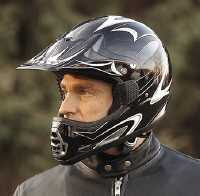Andropause and hair loss often go hand in hand. Imagine clumps of hair falling off your head, or observing strands of once healthy hair collecting in the shower drain. Maybe you run your hand through your hair and feel it thinning. It can feel daunting and quite scary.
Typically, hair loss is a result of an imbalance of male testosterone hormone in the body. Instead of infusing the hair with healthy testosterone, enzymes break it down to a simpler form known as dihydrotestosterone.
An excess of this hormone has the effect of decreasing the size of hair follicles which eventually break down and make your hair fall off sporadically. The medical condition that is best associated with hair loss in Andropause sufferers is hyperthyroidism. Hyperthyroidism is a by-product of decreasing levels of Human Growth Hormone, which is responsible for regulating our aging process. Andropause sufferers’ hormones have a profound effect on the rate and consistency of hair loss. Dihydrotestosterone (considered by medical circles the strongest, most potent form of testosterone) is responsible for building and growing body hair in men (at normal levels - an excess causes hair degeneration.)
This includes body hair, pubic hair, head hair, armpit hair – any hair. DHT is directly produced in the skin, made to work by supporting enzymes that break it down for distribution throughout the body. DHT levels are present more in certain areas of the body than in others – explaining why we may have a full crop of hair on our heads and little bushes of hair on our chests and backs. Realize, women also have DHT in their bodies but produce less of it.
That explains why women don’t have body hair. Case in point: an excess of DHT is prevalent in Andropause sufferers, explaining the reason for hair loss. The enzyme used to break down testosterone to dihydrotestosterone is ¨over activated¨ - working too hard and too fast.
This is the primary cause for this Andropausal condition. As aforementioned, dihydrotestosterone is present more in certain areas of the body than in others. For this reason, men’s hair can fall into funny patterns. You know, the balding train station clerk you might have seen with more hair on his scalp than the top of his head. The shrinking of hair follicles as a result of the production of DHT is attributed to this.
How hair grows is a wondrous thing in itself that needs to be recognized. Typically, hair grows at a rate of a quarter inch every 2 weeks. Andropause sufferers have their ¨hair growth cycles¨ disrupted when there is erratic growth of some hair strands where ¨new¨ hair pushed ¨old¨ hair out. Because Andropause is a period of hormonal imbalance, a lack of hormonal stability and poor homeostasis (holistic balance) in the body pushes things out of whack.
If you want to maintain healthy strands of hair, one thing you can do is hit that stair climber machine fellas! Exercise reverses the aging process and may certainly reverse this symptom. There are also hair loss products that can help you recapture your hair.
Secondary causes of hair loss in men suffering Andropause is stress. More specifically, stress raises the levels of cortisol and cortisone (known as stress hormones) in the body. Eating non-nutritional foods also speeds up hair loss.
Pretty much any activity that speeds up the aging process will speed up your hair loss.
Stay away from caffeinated drinks, fast foods, and cigarette smoking to keep running your hands through your thick mane longer. Participate in recreational activities to reduce stress and light up your life with a proper exercise regimen.
If you’re suffering from this condition, don’t let it affect you in the least bit! Andropause should not serve as a punishment – rather, a realization of a future for the better.
The information in this article is for educational purposes only, and is not intended as medical advice.
byoweb
Subscribe to:
Post Comments (Atom)

No comments:
Post a Comment